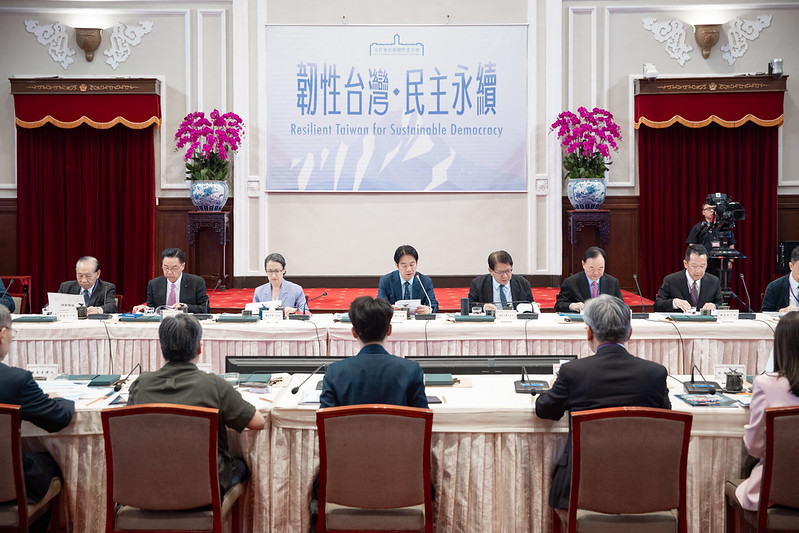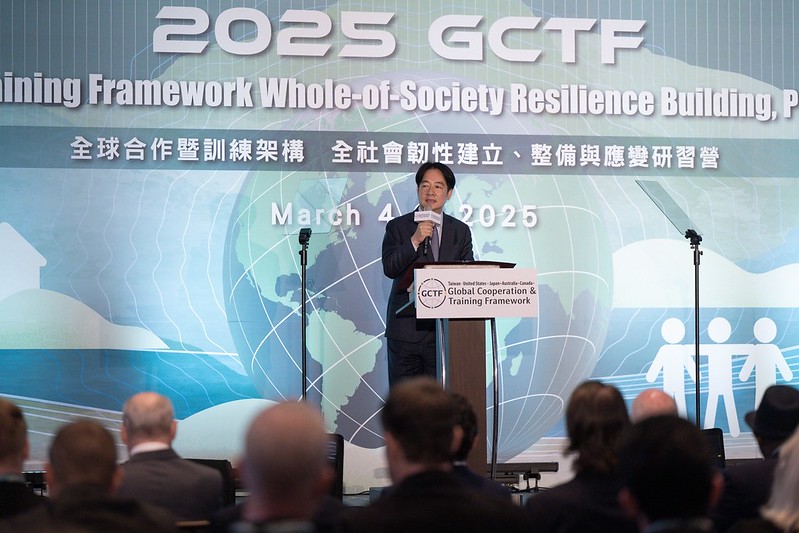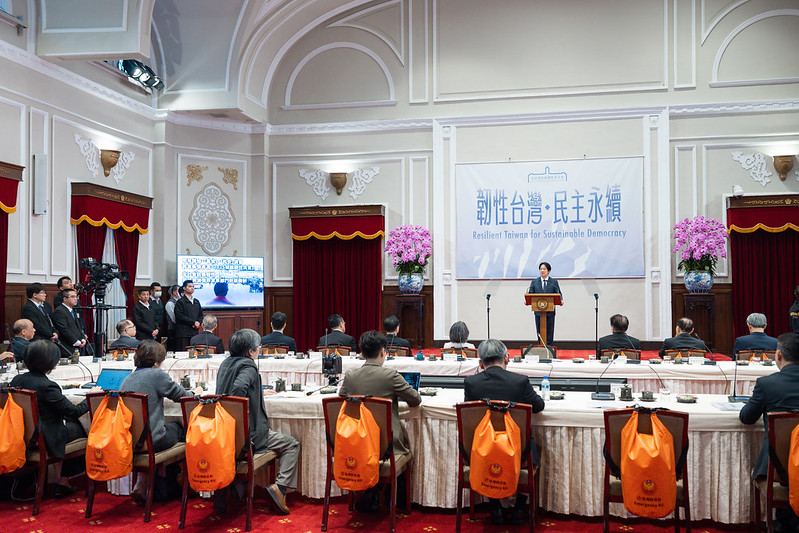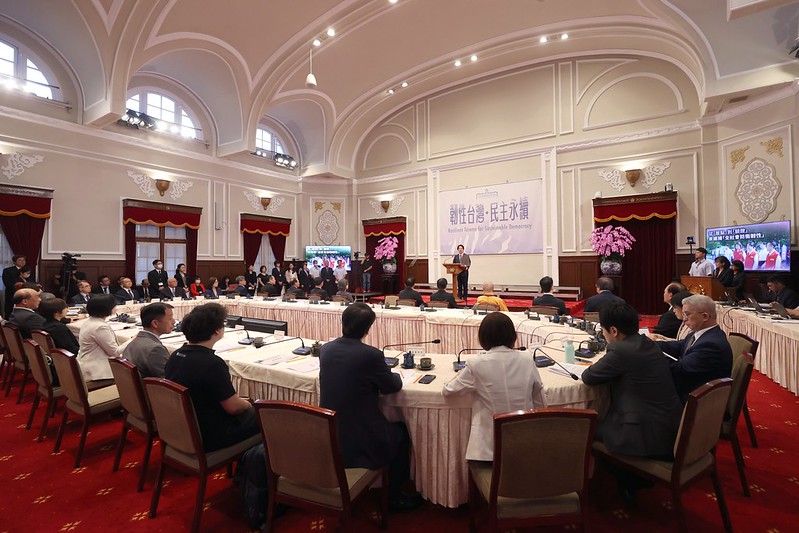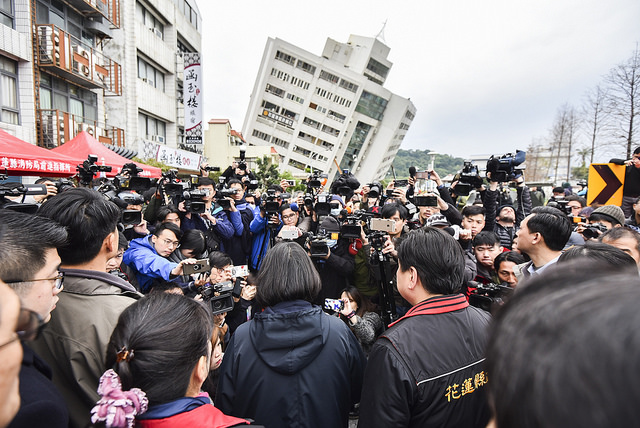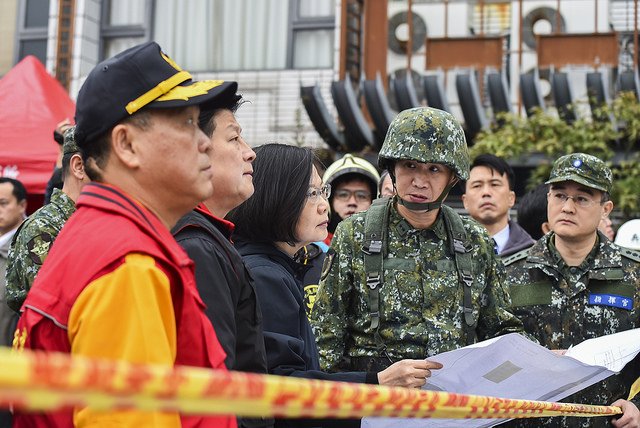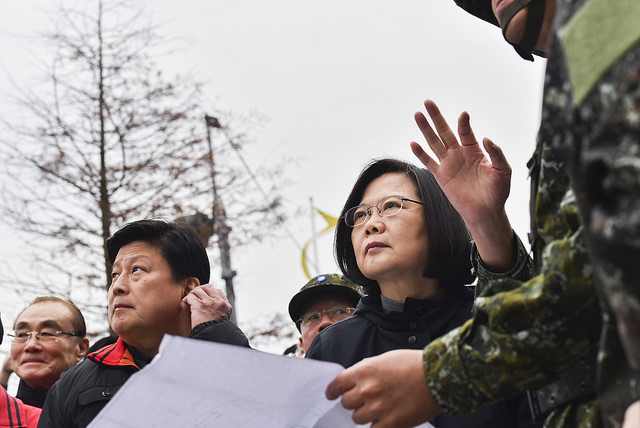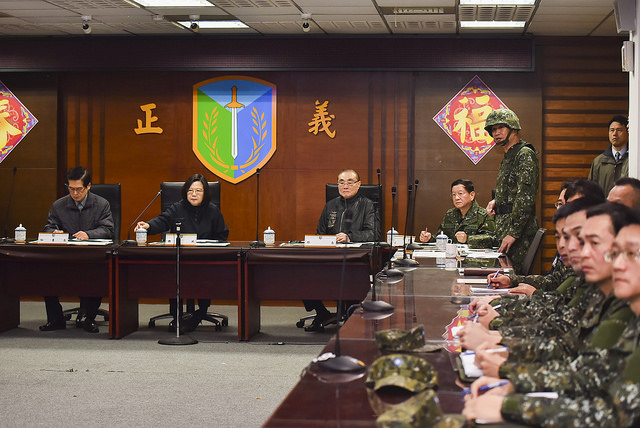News & activities
 News releases
News releases
In the wake of a magnitude-6.0 earthquake just off the coast of Hualien County late on the evening of February 6, President Tsai Ing-wen departed early on the morning of February 7 to visit the 2nd Combat Zone Emergency Operations Center and Hualien County Emergency Response Center, where she was briefed on disaster relief efforts by the armed forces, Hualien County Government, and teams from throughout Taiwan. The president called on the people of Taiwan to remain on the alert, and stressed that the central government will do everything possible to assist the Hualien County Government and safeguard our homeland.
At her first stop, the 2nd Combat Zone Emergency Operations Center, President Tsai thanked armed forces personnel for their hard work, and said that the government and military exist to respond in times like this. She also called on the members of the armed forces to continue giving their all, and take every opportunity to save lives and provide disaster relief.
The president also stated that the Ministry of National Defense must do all it can to assist rescue and relief efforts, and optimize on-site material and human resource deployment, especially for heavy equipment. She also urged local armed forces military personnel, the Ministry of Health and Welfare, and other related government agencies to help the Hualien County Government meet the shelter and critical care needs of earthquake victims.
The president called on all government agencies to thoroughly inspect all infrastructure that may have been affected by the quake including water, electricity, and gas systems as well as highways and rail lines, and make any needed repairs as quickly as possible so that people's lives can return to normal.
President Tsai also called on everyone in Taiwan to remain on the alert, saying: "Now is the time for the people of Taiwan to remain calm, and show resilience and compassion." She stressed that the government will stand together with the people of Taiwan, and make every effort to safeguard our homeland.
The president then departed for the Hualien County Emergency Response Center, where she was briefed on the earthquake damage. After the briefing, she said she spoke with Hualien County Magistrate Fu Kun-chi (傅崐萁) by phone just after 2 o'clock a.m. that morning, and assured him the central government would do everything possible to assist the Hualien County Government.
President Tsai thanked County Magistrate Fu, the Emergency Response Center staff, search and rescue workers in the field, and all the government and military personnel engaged in rescue operations for their hard work. She emphasized that the rescue work will continue, and urged everyone to work together during the critical first days following the disaster to save as many trapped victims as possible, and minimize the number of casualties.
The president then proceeded to Hualien Tzu Chi Hospital to visit victims being treated there, followed by a trip to inspect rescue operations at the severely damaged Yun Men Tsui Ti building. While there, she asked search and rescue personnel to give their all to save lives while ensuring their own safety.

